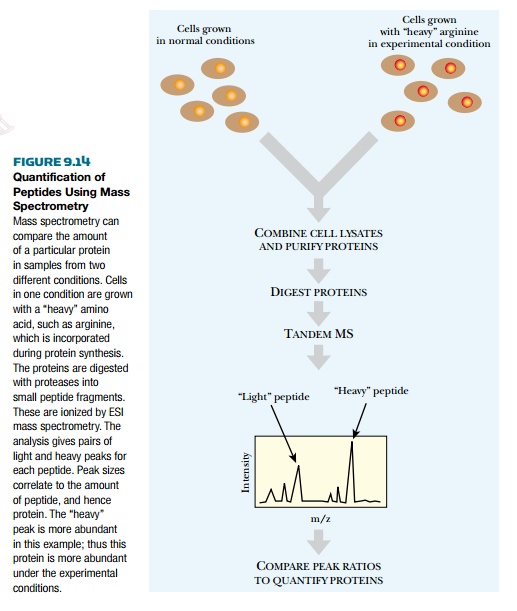Chapter: Biotechnology Applying the Genetic Revolution: Proteomics
Protein Quantification Using Mass Spectrometry
PROTEIN
QUANTIFICATION USING MASS SPECTROMETRY
Mass spectrometry can also be used to quantify a particular peptide from a protein, which directly correlates to the amount of protein (Fig. 9.14). To compare the relative amounts of one protein, samples of cells are grown under two experimental conditions. One sample is grown in the presence of an amino acid tagged with a heavy isotope. The heavy isotope is usually deuterium, 2H, but could also be 13C or 15N. These isotopes increase the mass of all proteins in that particular sample. The cells from each condition are lysed, and the proteins isolated. The two samples are mixed and analyzed using HPLC coupled to ESI massspectroscopy. Each individual peptide will now have two peaks, one from the normal and one from the heavy sample. The ratio of the two peaks will determine the relative change in level of the protein of interest between the samples.

Related Topics